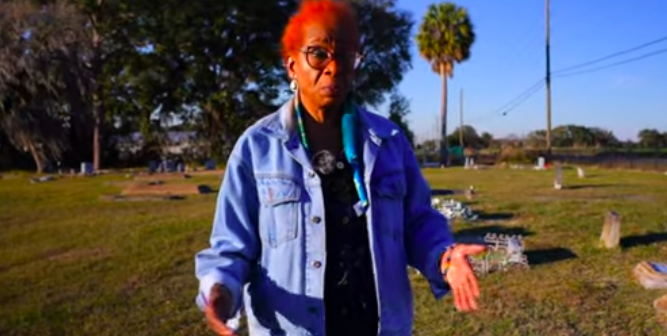
July 29, 2024
Black Residents Of Florida Town Push For National Register Recognition Amid Opposition
While other Black communities in Florida, such as the infamous Rosewood, were destroyed by white mob violence, the residents Royal managed to preserve their community.
Residents of Royal, an unincorporated town of 1,200 residents in Sumter County, Florida, are striving to have their city recognized on the National Register of Historic Places. Many who live here can trace their land back to ancestors who bought plots after the Civil War.
Edward González-Tennant, an assistant professor at the University of Texas-Rio Grande Valley, is leading the project to have the town recognized by the National Registry. González-Tennant’s nomination explains that Royal is “one of the most compelling examples of a rural, historically African American community in Florida.”
While other Black communities in Florida, most infamously, Rosewood, met their ends at the hands of white mob violence, the inhabitants of Royal held onto their community.
But today Royal faces new threats: specifically, construction projects from Florida’s Department of Transportation (FDOT), several of which threaten to run through the town.
Sumter County officials do not recognize Royal as a historic resource. Furthermore, white landowners in the area, who do not reside in Royal, oppose including their land within Royal’s boundaries. According to the SPLC, this opposition appears to have influenced the Florida State Preservation Office to redraw the boundaries of the Royal Historic District to exclude Black landowners.
Melissa Williams, a senior staff attorney with the SPLC’s Economic Justice litigation team, aid residents realize that they and by extension, their community’s existence, needs to be documented.
“The residents of this community recognize the importance of these historic boundaries in any listing of Royal on the National Register,” Williams said. “And that’s why they’re fighting so hard to make sure that they are historically accurate and that they are well documented. The oral histories collected by Dr. González-Tennant provide further support to the historic boundaries. It is our hope that the state will finally get this right, after having the nomination sent back twice by the National Park Service.”
Beverly Steele, the 67-year-old founder of the Young Performing Artists Inc., a non-profit organization, told the SPLC: “There’s no need to change history. I feel that the state has tried to do that. You just can’t. It’s American history. It’s national history. It is, you know, living memories.”
RELATED CONTENT: Black Families In The South Wrestle Control Of Their Land